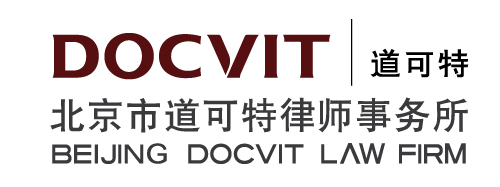Family trusts are starting to take off in mainland China, but their target clientele, high-net-worth entrepreneurs, still harbour doubts and misunderstandings about the rising business. These include concerns about the complexity of the family trust structure, misgivings about the commingling of assets, and apprehensions about losing control of their companies, as discussed in part 1. In part 2 of the article, we continue to analyse and address the concerns.
Impact of family trust funds on company operations: Operating a company requires cash flow. The main function of a family trust in China is to preserve assets and separate company from family properties to secure the entrepreneur and their family’s living expenses and ensure their personal lives are not affected when the company experiences operating risks. If properly arranged, family trusts will not affect the company’s operation, but act as a “shield” for the entrepreneur and their family. If the company faces the risk of a cash flow rupture, funds that have been set aside in advance may be used to rescue the company. The case of Du Juan and Gome is a perfect illustration.

Senior Partner
DOCVIT Law Firm
In 2010, Huang Guangyu, founder of Gome Group, was sentenced to 14 years in prison, after which all Gome Electrical Appliances’ suppliers rushed to press for payment, rapidly stretching Gome’s funds to the limit. While the group was at a loss, Du Juan, Huang’s wife, swept in with RMB200 million to help Gome weather the storm. Allegedly, this was due to an understanding between Du and Huang, where Huang would place 2% of Gome’s net profit each year into Du’s personal account, and Du would allocate the funds to trust and insurance. The arrangement, as it turned out, became the lifeline of Gome.
Purpose of establishing a family trust: In DOCVIT’s interactions with clients, the authors found many have been insufficiently motivated to establish a family trust. Overseas, family trusts are often sought to avoid high estate taxes, but the timetable for introducing an estate tax in China remains unclear. Being products of common law, family trusts have a long history in the west and prominent foreign families are naturally more inclined to accept them, whereas most first-generation entrepreneurs in China have only one child and are not yet aware of trust funds’ importance. Prominent foreign families also use family trusts as a way to pass on family traditions, whereas passing on family traditions by high-net-worth individuals in China is just starting and has yet to gain momentum. That, to some extent, explains why family trusts are slow to take off in China.
Some high-net-worth individuals are overly confident of the stability of their marital relationships, another reason for insufficient motivation. For example, Li Guoqing and Peggy Yu, founders of Dangdang, did not have a family trust when their marriage of more than 20 years ended. Consequently, a heavyweight dispute surrounding a serious divergence of views over the division of Dangdang’s equity accompanied the divorce, which had a materially negative impact on Dangdang.
In contrast, the divorce of Wu Yajun, chair of Longfor Properties, was a more positive example. Before the listing of Longfor Properties, she and her husband, Cai Kui, each established a family trust in which they each held a BVI company, through which they held their respective equity in Longfor Properties. When their marriage ended, the parting was peaceful and neither the share price nor their respective property was affected.

Partner
DOCVIT Law Firm
Threshold for family trusts in China: In 2018, the CBIRC issued the Notice of the Trust Regulation Department on Strengthening Oversight of Trusts During the Transition Period for the Regulated Asset Management Business, which expressly specifies that the “new asset management regulations” do not apply to family trusts, while requiring that property value of a family trust be not less than RMB10 million and that such trusts have both affairs management and financial service functions. Although the absolute number of high-net-worth individuals in China is significant, it does not account for a large percentage. Comparatively, the threshold for establishing a family trust in common law countries is relatively low and there is no requirement for a minimum amount. Because the transfer of real property and equity trusts can be done without a transaction, any asset can be passed to future generations via a trust.
Cost of establishing a family trust: Some clients are very concerned about the high cost of establishing a family trust, but such misgivings are easily dispelled. In fact, lawyers charged with designing family trust structures generally charge only a reasonable fee for their work, and the management fee charged by the trust company acting as trustee is also relatively modest. Exchanging a reasonable cost for the security of more than RMB10 million in assets and the realisation of multiple family legacy functions is very competitive in terms of value for money.
Privacy protection: Unlike overseas family trusts, family trusts in China are subject to a registration and disclosure system, which gives rise to uncertainty about privacy protection. Article 10 of the Trust Law specifies that “when establishing a trust, if relevant laws and administrative regulations require the trust property to be registered, trust registration should be carried out in accordance with the law”.

A client who was a delegate to the National People’s Congress asked if having a family trust meant concealing information from the state. In that respect, it is difficult for high-net-worth individuals to achieve the objective of protecting asset privacy through a family trust in China. Perhaps, as China’s trust industry continues to mature, trust-related laws and regulations will be amended to allow trusts to protect privacy akin to overseas trusts. At such time, family trusts in China will embrace growth on an even larger scale.
This article is a summary of main concerns. Through professional trust design, the authors are confident that all the above-mentioned issues can be duly addressed.
Read more: Why Chinese entrepreneurs reject family trusts – Part I
Zhang Ting is a senior partner and Hou Xiaoling is a partner at DOCVIT Law Firm

DOCVIT Law Firm
56/F Fortune Financial Center
No.5 East Third Ring MiddleRoad
Chaoyang District, Beijing 100020, China
Tel: +86 10 8586 1018
Fax: +86 10 8586 3605-8006
E-mail:





















